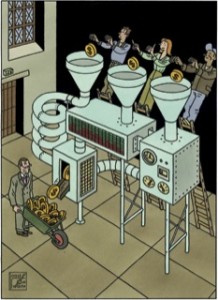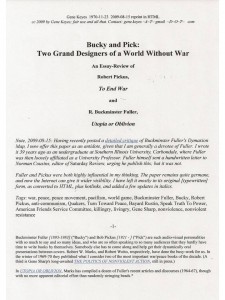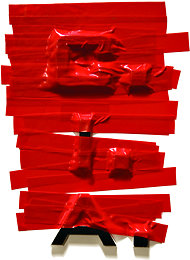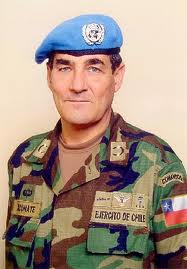
Attached is a first rate essay that should be studied carefully. Chuck
ANNALS OF ECONOMICS
Much of what investment bankers do is socially worthless.
by John Cassidy, New Yorker
NOVEMBER 29, 2010
For years, the most profitable industry in America has been one that doesn’t design, build, or sell a single tangible thing.
. . . . . .

Perhaps the most shocking thing about recent events was not how rapidly the big Wall Street firms got into trouble but how quickly they returned to profitability and lavished big rewards on themselves. Last year, Goldman Sachs paid more than sixteen billion dollars in compensation, and Morgan Stanley paid out more than fourteen billion dollars. Neither came up with any spectacular new investments or produced anything of tangible value, which leads to the question: When it comes to pay, is there something unique about the financial industry? [Answer: no, they are overpaid but not held accountable.]
In 1940, a former Wall Street trader named Fred Schwed, Jr., wrote a charming little book titled “Where Are the Customers’ Yachts?,” in which he noted that many members of the public believed that Wall Street was inhabited primarily by “crooks and scoundrels, and very clever ones at that; that they sell for millions what they know is worthless; in short, that they are villains.” It was an extreme view, but public antagonism toward bankers and other financiers kept them in check for forty years. Economic historians refer to a period of “financial repression,” during which regulators and policymakers, reflecting public suspicion of Wall Street, restrained the growth of the banking sector. They placed limits on interest rates, prohibited deposit-taking institutions from issuing securities, and, by preventing financial institutions from merging with one another, kept most of them relatively small. During this period, major financial crises were conspicuously absent, while capital investment, productivity, and wages grew at rates that lifted tens of millions of working Americans into the middle class.
Since the early nineteen-eighties, by contrast, financial blowups have proliferated and living standards have stagnated. Is this coincidence? For a long time, economists and policymakers have accepted the financial industry’s appraisal of its own worth, ignoring the market failures and other pathologies that plague it. Even after all that has happened, there is a tendency in Congress and the White House to defer to Wall Street because what happens there, befuddling as it may be to outsiders, is essential to the country’s prosperity. Finally, dissidents like Paul Woolley are questioning this narrative. “There was a presumption that financial innovation is socially valuable,” Woolley said to me. “The first thing I discovered was that it wasn’t backed by any empirical evidence. There’s almost none.” ♦
Phi Beta Iota: The Republic has lost the art of seeing the Big Picture. The failure of the US infected all other countries. Failed states have risen from 25 or so to over 175, and the USA is now on the verge of becoming a failed state itself.
Journal: Reflections on Integrity
Worth a Look: Book Reviews on Bankruptcy of US Economy, Federal Reserve Malfeasance
Worth a Look: Book Reviews on Blue Collar
Worth a Look: Book Reviews on Class War (Global)
Worth a Look: Book Reviews on Corporate & Transnational Crime
Worth a Look: Book Reviews on Corporate Lack of Integrity or Intelligence or Both
Worth a Look: Book Reviews on Elite Rule
Worth a Look: Book Reviews on Middle Class
Worth a Look: Book Reviews on Poisons, Toxicity, Trash, & True Cost








